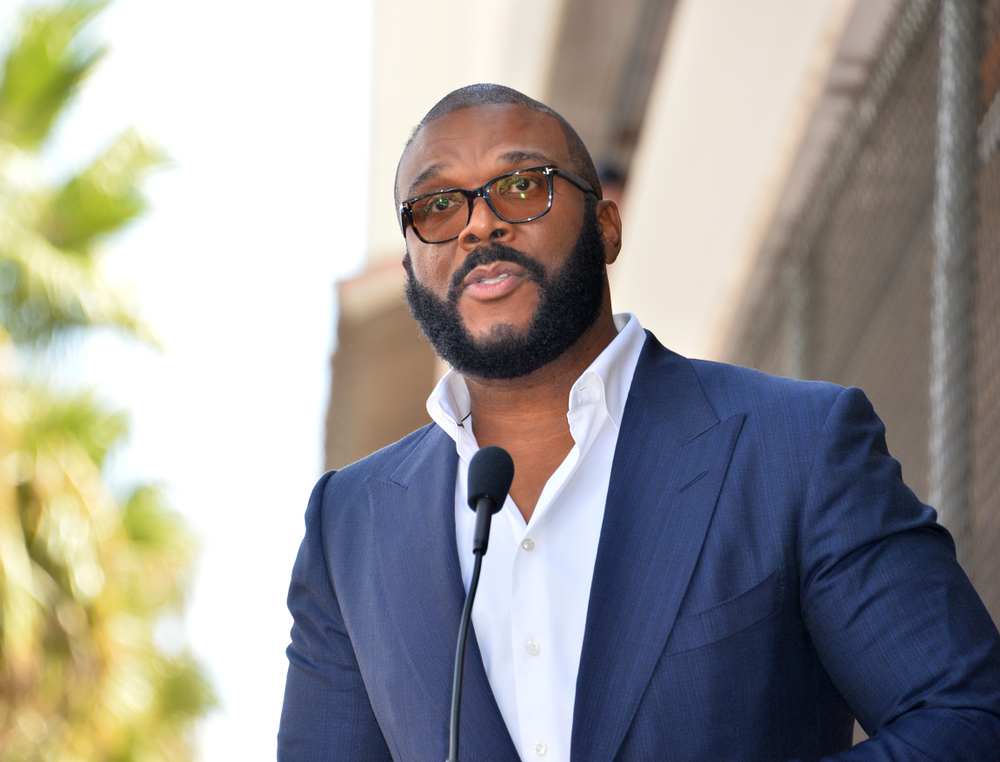Anita Hill recently delivered a moving speech about the importance of affecting social change. It was part of the Jing Lyman Lecture Series, an annual event that recognizes trailblazers who contribute significantly to gender equality, sponsored by Stanford University’s Clayman Institute for Gender Research. Although it was the very first celebration in the institute’s fifty years of advocacy, the audience found Hill’s voice rather distinct and recognizable.
“As a survivor of both behavioral and systemic failures, I believe that we can learn even from failed processes,” she told the packed audience. “In fact, I have seen how the spectacle of failed processes can lead to social change.”
Many in attendance to hear Hill speak at Stanford’s Hauck Auditorium that day (they wasted no time in welcoming her with a standing ovation) were also in the company of the 30 million Americans who watched her testify before an all-white, all-male Senate Judiciary Committee, then headed by Delaware senator Joe Biden at the confirmation hearings of Supreme Court Justice Clarence Thomas in 1991, where her allegations propelled sexual harassment into the national spotlight like never before. At the time, Americans were still defining sexual misconduct, “and they certainly didn’t know that this behavior in the workplace was against the law,” she said.
She continues her speech: “On October 12th, 1991, I left Washington and soon found out that 7 out of 10 viewers believed my testimony had been invented.” However, she then clarified that what caught her attention wasn’t the 70% who believed her story was fabricated—it was the opposite. “The 30% of those with whom my testimony resonated refused to be silent about what they had witnessed,” she explained. “They shifted the direction of the conversation.”
Just one year following the proceedings, the Supreme Court had its largest number of sexual harassment cases in a single session. The U.S. Equal Employment Opportunity Commission (the agency for which both Hill and Thomas worked during the time of his “alleged” assaults) also saw more than a 50% increase in complaints of sexual harassment.
Hill’s testimony was ultimately legitimized (America’s perception had shifted to 70% of its citizens believing her claims), and it set off a chain reaction of procedural and cultural changes in workplaces across the country. Three decades later, she is still fighting against gender-based violence and sexual misconduct, as many Americans continue to rightfully see gender (and race) politics as nothing short of traumatic. After all, it’s hard to ignore that the chairman of the 1991 Senate Judiciary Committee—the same man who lambasted Hill and allowed his cabinet to wage an incessant, “high-tech lynching” (as she so aptly calls it) is now this country’s president, set for a rematch with a former sitting president who has been accused of sexual harassment, even found liable for sexual abuse.
And it isn’t just politics where individuals with a history of sexual misconduct go on to hold positions of power and influence. Remember when Christine Blasey Ford testified during Brett Kavanaugh’s confirmation hearings in 2018 and it seemed like nobody believed her too? The idea is particularly unnerving considering the widespread impact of sexual predation on many young women and girls, those who are now facing a measure of reproductive injustice more frightful than their mothers had to withstand.
While Hill was always well aware of sluggish progress and setbacks in gender equality legislation, optimism remained the overall tone of her address. “We have made great advances, and we’re closer today than we have ever been in my lifetime,” she acknowledged. The potential in the Senate’s gender ratio, the millions of young supporters of #MeToo, and the 70 anti-harassment laws passed in 22 states throughout the country, many of which garnered bipartisan support since the launch of #MeToo’s movement is proof of a giant step in the right direction. She firmly believes that achieving gender and racial equality at the highest levels of government while simultaneously putting an end to gender-based misconduct is vital in the fight against what she describes as the weakening of American democracy. “When laws protecting against sexual harassment and other legal safeguards are recognized, it encourages women and other marginalized groups to participate in the workforce,” she advises. “This, in turn, allows them to have an essential, political voice”.
Hill was born in rural Lone Tree, Oklahoma, just two years after the Brown vs Board of Education ruling, to two parents, Erma and Albert Hill, who lived through the Jim Crow era. They were both farmers and provided her, their youngest of thirteen children, a deeply rooted understanding of the dire need for social change in America. As a result, she went on to become an award-winning author and professor of law, social policy and women’s studies at Brandeis University in Waltham, Massachusetts. She earned her Juris Doctor degree from Yale Law School in 1980 and began her career in Washington, D.C., working in private practice in the U.S. Education Department and at the Equal Employment Opportunity Commission. In 1989, she became the first Black person to be tenured at the University of Oklahoma College of Law.
Hill’s ongoing advocacy underscores how real change is often a gradual undertaking. It is also a cautionary tale on why we shouldn’t judge our nation based on any single moment in history. “If your country doesn’t have a balanced gender political representation, and you allow for gender-based violence, your nation is setting back progress,” she warns, reminding us that equality is “not a sprint or a marathon, but a relay race.”
Considering how she has run many legs for the cause herself, a team leader with an unwavering dedication to keeping the baton moving, we can certainly continue to do our part to pass it on.
Thank you, Anita Hill.








